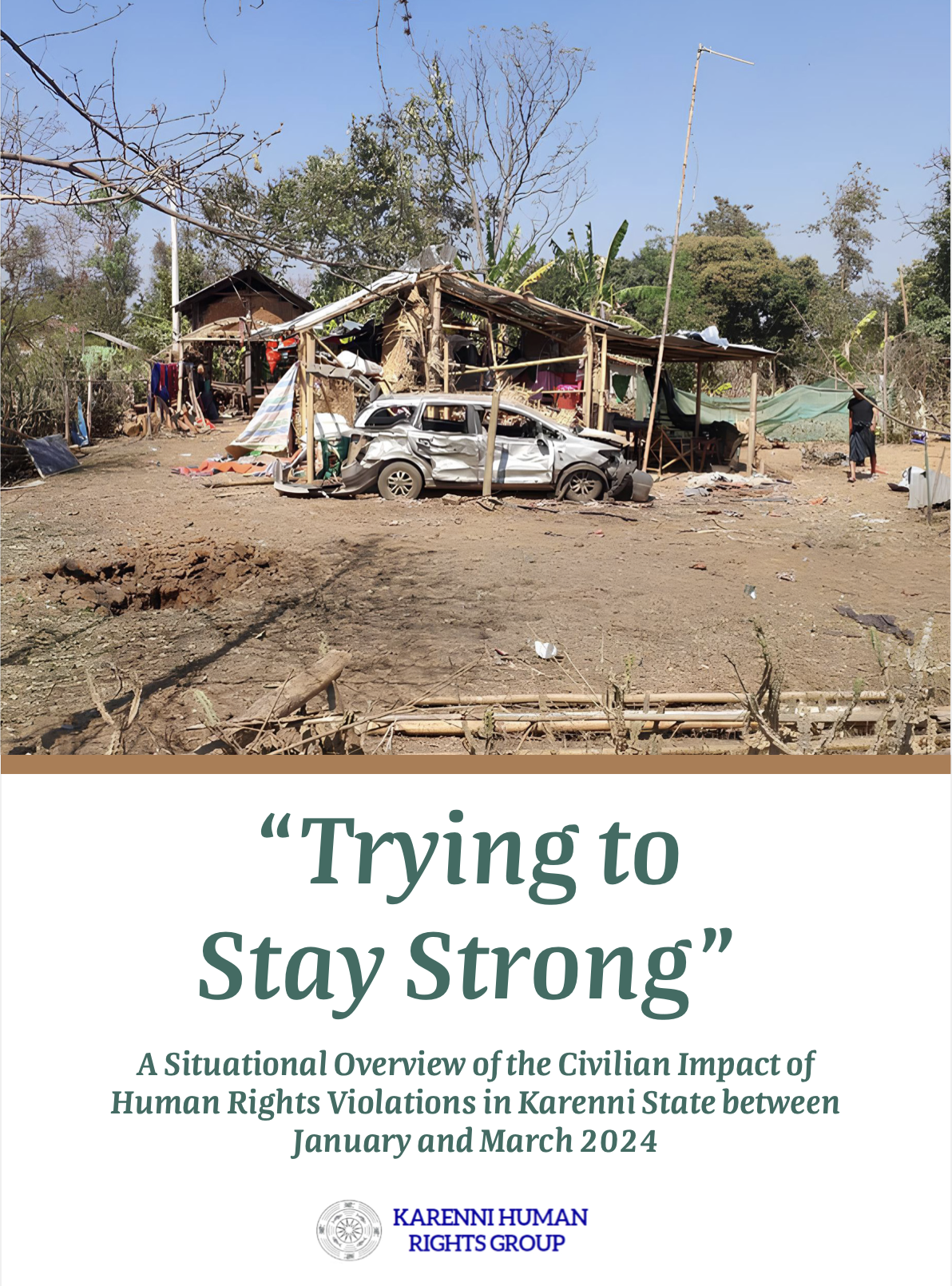“Trying to Stay Strong” A Situational Overview of the Civilian Impact of Human Rights Violations in Karenni State between January and March 2024
09 December 2024


Widespread killing of civilians, including aerial and ground bombardments by the military junta, has affected thousands of people in Karenni State, Burma. The Burma Army continues to carry out systematic human rights violations against innocent civilians, leading to multiple crises throughout the state. The escalating levels of violence have resulted in significant gaps in
education, justice, health, and livelihoods.
The United Nations Office for the Coordination of Humanitarian Affairs has estimated that more than 18.6 million people, about one-third of the country’s total population, desperately need humanitarian aid.1 Of this number, approximately six million children are severely impacted by forced displacement, food insecurity, and inaccessible healthcare and education.
This is further compounded by the economic crisis and staggering inflation rates, which have forced nearly half of the country’s population to live below the poverty line. It is important to note that local actors report much higher numbers than the United Nations due to the junta-imposed access restrictions that the UN may encounter.
In addition, the ongoing and unabated attacks have led to a worsening humanitarian crisis that has seen more than 3 million people internally displaced across Burma.2 The Karenni Human Rights Group (KnHRG) has documented at least 210,000 internally displaced persons (IDPs) in Karenni this year. This is an increase from 2023, in which KnHRG documented 180,000 IDPs, which amounted to approximately 40 percent of the population.
In eastern Burma, Karenni State is the smallest of the country’s seven states and regions, with just under 300,000 people. The junta’s campaign of fear is familiar to ethnic people who have suffered under their brutality for decades. The impacts on civilians have been catastrophic. Across the state, fundamental freedoms and basic human rights are routinely denied. Since the attempted coup, the junta has increasingly targeted civilians with artillery, mortar shelling, and airstrikes.
Last year, Karenni civil society organizations released a report that revealed evidence of war crimes and crimes against humanity perpetrated by the military junta. The report, titled “How Can We Survive in the Future?” found that between May 2021 and September 2022, civilians faced widespread human rights violations which undermined their access to justice.3 This report, titled
‘Trying to Stay Strong,’ finds a worrying escalation of those concerns, including challenges regarding education, health, and securing their livelihoods.
Documentation by KnHRG shows that the junta indiscriminately punishes and collectively targets unarmed civilian populations to stoke fear and tensions while also weakening morale. This is part of their long-time strategy, known as the ‘four cuts,’ which seeks to undermine communities and opposition forces by cutting off food, funds, information, and recruits.
This report will outline the challenges faced by Karenni people in the current context. The findings in this report indicate civilians are struggling to survive as their basic food and health needs are not being met. With 325 temporary shelters and 93 internal displacement camps in Karenni State and 11 along the Karenni-Shan border, there is an urgent call to assist those sheltering from the junta’s aggression, including ground and aerial attacks.
Announcements
21 May 2025
Open letter: Malaysia must lead ASEAN with principle, not hypocrisy, to address the Myanmar crisis

Progressive Voice is a participatory rights-based policy research and advocacy organization rooted in civil society, that maintains strong networks and relationships with grassroots organizations and community-based organizations throughout Myanmar. It acts as a bridge to the international community and international policymakers by amplifying voices from the ground, and advocating for a rights-based policy narrative.